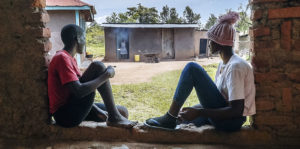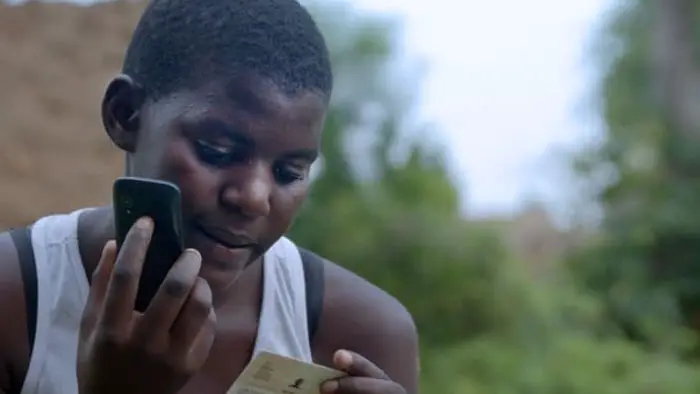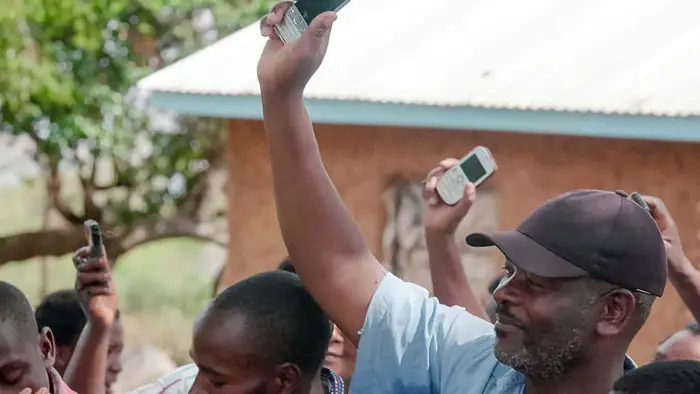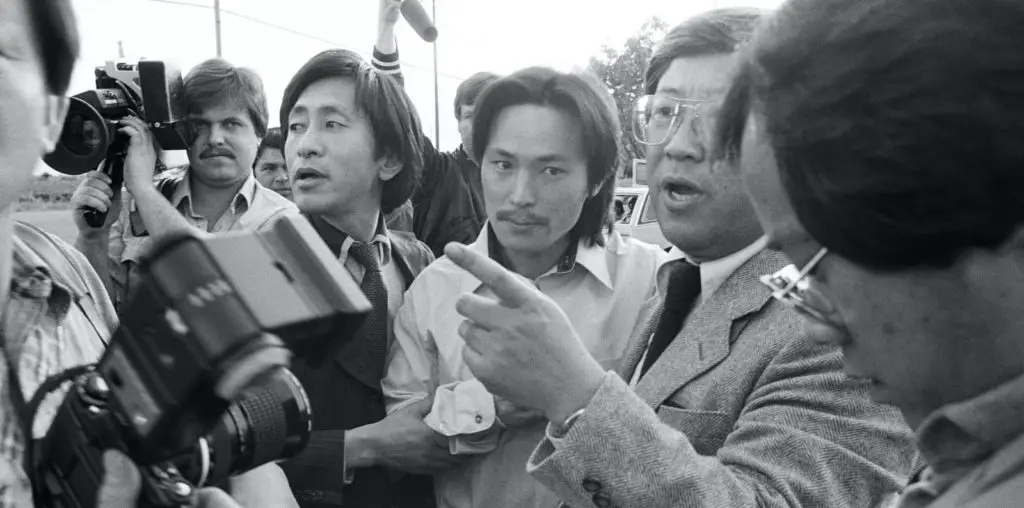
The elephant in the room throughout Free Money is, of course, the problem inherent in the time-worn trope of the White savior. DeFilippo and Soko get this across without actually saying it, but the fact is that setting up a White, U.S.-based organization to provide the Universal Basic Income doesn’t feel much different than generations of boss/servant that have gone before, and even the notion of giving directly doesn’t change the arrogance of that approach. White people swooping in to save the day have done more harm than good over the years. This, like poverty-porn-voluntourism, benefits the giver far more than those they hope to serve.
The notion of running some sort of social experiment on poor people in Kenya is abhorrent on its face. GiveDirectly calls it an experiment (see note at end of review for academic process details of the study). The filmmakers present this idea without much editorializing, remaining relatively impartial. However, they linger on the story of Jael, a young woman who can’t be verified as a full-time resident of the village and does not qualify for the funds. Her family is grief-stricken, and we see the impact on her expecting the income and then being told she doesn’t qualify.

“The impulse of Faye and the team at GiveDirectly is a noble one…”
Free Money is an important document continuing a discussion of how best to globally distribute the wealth of nations. Mostly what we learn is that as long as anyone is in control of the wealth, there’s a corruptible power structure in place. Case in point: given the desperate poverty of Kogutu and the surrounding region, wouldn’t the best approach be to pool the funds coming in and have residents take what they need as they need it? That, as we know, is unlikely to work well because instead of redistributing wealth, what GiveDirectly has done by providing a large income to certain individuals, is to create a smaller version of avaricious capitalism.
Capitalism depends on the poor existing so that the rich may also exist as a contrast. In this scenario, wealth is expressed not as a measure of needs met but as the delta between those having the least and those with the most. In the U.S., it’s becoming a sociopathic game that’s destroying the lives of more citizens as the middle-class shrinks. The fact that a charity like GiveDirectly can inspire such generosity in Americans is encouraging. It speaks well of us as a people at a time when so much of our culture is about conflict and disagreement.
The impulse of Faye and the team at GiveDirectly is a noble one by any standard, yet the consequences of an experiment such as with Kogutu can be devastating. Free Money shows us that while Universal Basic Income may be the right thing to do, we are unlikely to validate the notion through the experiment conducted by GiveDirectly. Free money, as we learn, is never free.
Free Money screened at the 2022 Toronto International Film Festival.
Updated details 9-12-2022. Tyler Hall from GiveDirectly states: there is some scientific rigor applied to the experiment, as outlined here. There is data being collected, and preliminary findings have been released. Independent economic researchers, including Nobel Prize winner Aberjee Banerjee, are running the research portion. There is a control group made up of 100 similar, nearby villages.

"…an important document continuing a discussion of how best to globally distribute the wealth of nations."



Am touched by Rael Jael Achieng Songa’s story.is this acting or true story.if its true how can l reach Songas family to help Rael with her education.